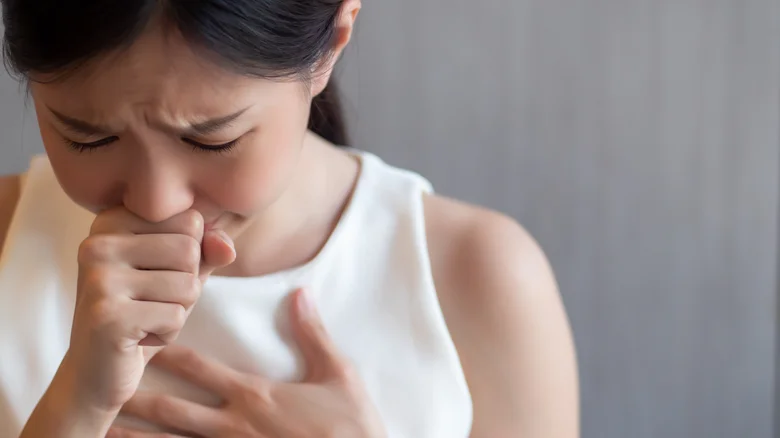Anxiety is known to affect us in various ways, from causing butterflies in the stomach to full-blown panic attacks. But one of the lesser-known side effects can be hiccups. Yes, those sudden, involuntary contractions of the diaphragm muscle can sometimes be triggered by stress and anxiety. In this article, we’ll delve into the curious case of anxiety-induced hiccups, understand their connection, and explore how to deal with them.
Understanding Hiccups
Before we dive into the connection between anxiety and hiccups, let’s first understand what hiccups are. Hiccups, medically known as synchronous diaphragmatic flutter (SDF) or singultus, occur when the diaphragm suddenly contracts, and the vocal cords close immediately after. This closure of the vocal cords causes the characteristic “hic” sound.
Common Triggers of Hiccups
Hiccups are usually a benign and temporary condition. Common triggers include:
- Eating too quickly or overeating
- Drinking carbonated beverages or alcohol
- Sudden changes in stomach temperature (such as drinking a hot beverage followed by a cold one)
- Excitement or emotional stress
- Swallowing air while chewing gum or sucking on candy
While these triggers are well known, the connection between hiccups and anxiety is less discussed.
The Anxiety-Hiccup Connection
Anxiety can set off a variety of physical reactions in the body. When you’re anxious, your body is in a heightened state of arousal, preparing for the so-called “fight or flight” response. This response can cause several physiological changes, including disruptions in normal breathing patterns that might lead to hiccups.
Stress Hiccups Explained
When you’re stressed, your body’s sympathetic nervous system activates, which can lead to quicker breathing to increase oxygen intake. This rapid breathing can cause an imbalance in the carbon dioxide levels in your blood, which can potentially trigger hiccups.
Furthermore, anxiety can also lead to spasms of the muscles, including the diaphragm. When the diaphragm spasms, it can pull down in a jerky way, which can cause you to suck air into your throat suddenly, resulting in a hiccup.
Anxiety Spasms and Your Body
Anxiety spasms, or muscle twitches caused by stress, are a clear indication of how mental states can influence physical reactions. Similarly to how a sudden scare can make you jump, anxiety can cause your diaphragm to contract, leading to hiccups.

Dealing with Anxiety-Induced Hiccups
While hiccups are usually not a cause for concern, frequent or prolonged episodes can be bothersome. If you find that anxiety is giving you the hiccups, there are several strategies you can try to alleviate them.
Calming Your Breathing
Since anxiety can disrupt your normal breathing pattern, one of the most effective ways to stop hiccups is to reset your breathing. Techniques such as deep breathing, slow breathing, or diaphragmatic breathing can help relax the diaphragm and stop the hiccups.
Addressing the Anxiety
If anxiety is at the root of your hiccups, then managing your anxiety may help reduce their frequency. Methods for managing anxiety include:
- Mindfulness meditation
- Exercise
- Relaxation techniques like progressive muscle relaxation
- Counseling or therapy, especially cognitive-behavioral therapy (CBT)
- Medication, if prescribed by a healthcare professional
Home Remedies and Distraction Techniques
Some well-known home remedies for stopping hiccups include drinking a glass of water quickly, holding your breath, biting on a lemon, or swallowing a teaspoon of sugar. While the effectiveness of these methods varies from person to person, they are based on the idea that increasing carbon dioxide levels in the blood or stimulating the vagus nerve can stop hiccups.
Distraction techniques can also work by engaging your mind in an activity that breaks the cycle of hiccups. This can be as simple as playing a memory game or doing a task that requires concentration.
When to See a Doctor
by charlesdeluvio (https://unsplash.com/@charlesdeluvio)
In most cases, hiccups are harmless and will resolve on their own. However, if you experience hiccups that last for more than 48 hours or are severe enough to interfere with eating, sleeping, or breathing, it’s important to seek medical advice. Persistent or intractable hiccups could be a sign of an underlying medical condition.
Additionally, if your anxiety is causing frequent or severe physical symptoms, including hiccups, it’s worth discussing with a healthcare provider. They can help you manage your anxiety and recommend treatment options.
Prevention Strategies
Preventing anxiety-induced hiccups involves managing both your anxiety and avoiding known hiccup triggers. Here are some strategies:
Lifestyle Changes
- Maintain a regular eating schedule and avoid overeating.
- Limit intake of carbonated beverages and alcohol.
- Practice stress management techniques regularly.
Mental Health Maintenance
- Engage in activities that promote relaxation and well-being, such as yoga or hobbies.
- Consider therapy or counseling to develop coping skills for anxiety.
Creating a Supportive Environment
- Surround yourself with a supportive social network.
- Communicate your needs and concerns with friends and family.
Takeaways
Hiccups are a quirky yet common bodily function that can sometimes be triggered by anxiety. While they’re usually nothing to worry about, understanding the connection between stress and hiccups can help you manage them more effectively.
By employing breathing techniques, addressing the underlying anxiety, and practicing prevention strategies, you can reduce the occurrence of anxiety-induced hiccups. And remember, if your hiccups or anxiety are causing significant disruption in your life, it’s always best to consult with a healthcare provider.
In conclusion, while the occasional hiccup is a normal part of life, frequent episodes could be a sign that your body is reacting to stress. By taking steps to manage your anxiety, you’re not only helping to prevent hiccups but also improving your overall health and well-being.